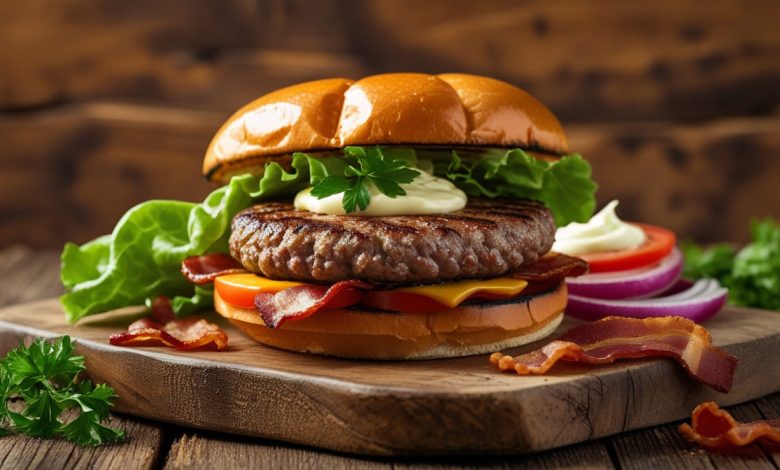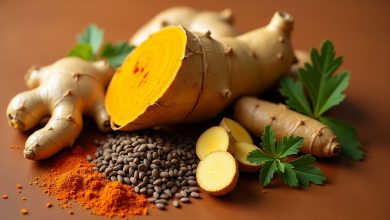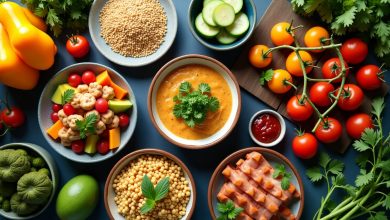How to Choose the Best Ground Beef for Burgers: 7 Expert Tips

There’s nothing quite like biting into a perfectly grilled, juicy burger. But the secret to a great burger starts long before it hits the grill—it begins with choosing the right ground beef. With so many options available, how do you know which one is best? In this guide, we’ll break down 7 expert tips for choosing the best ground beef for burgers. Whether you’re a grilling novice or a seasoned pro, these tips will help you elevate your burger game. Let’s get started!
1. Understand Fat Content
The fat content in ground beef is one of the most important factors in determining the juiciness and flavor of your burgers.
- Why It Matters: Fat adds moisture and flavor, but too much can cause flare-ups on the grill.
- Common Ratios:
- 80/20 (80% lean, 20% fat): Ideal for juicy, flavorful burgers.
- 85/15 (85% lean, 15% fat): A slightly leaner option that still delivers great taste.
- 90/10 (90% lean, 10% fat): Healthier but can result in drier burgers if overcooked.
Pro Tip: For the best balance of flavor and juiciness, go for 80/20 ground beef.
External Resource: Learn more about meat cuts and fat ratios from the USDA’s guide to beef.
2. Choose the Right Cut
Not all ground beef is created equal. The cut of beef used can impact the flavor and texture of your burgers.
- Popular Cuts for Burgers:
- Chuck: Rich flavor and ideal fat content (usually 80/20).
- Brisket: Adds a deep, beefy flavor.
- Sirloin: Leaner but still flavorful.
- Blend: A mix of chuck, brisket, and sirloin for the best of all worlds.
Pro Tip: Ask your butcher for a custom blend of chuck and brisket for the ultimate burger experience.
For more on beef cuts, read: The Best Cuts of Beef for Grilling.
External Resource: Explore the different cuts of beef with this guide from Beef It’s What’s For Dinner.
3. Check for Freshness
Fresh ground beef is key to making delicious burgers. Here’s how to ensure you’re getting the best quality:
- Color: Look for bright red meat. Avoid gray or brown patches.
- Smell: Fresh ground beef should have a mild, slightly sweet smell. Avoid meat with a sour or ammonia-like odor.
- Packaging: Check for secure, leak-proof packaging with a recent sell-by date.
Pro Tip: Buy ground beef from a trusted butcher or grind your own at home for maximum freshness.
For tips on grinding your own beef, check out: How to Grind Your Own Beef at Home.
External Resource: Learn how to grind beef at home with this guide from Serious Eats.
4. Consider Grass-Fed vs. Grain-Fed
The diet of the cattle can affect the flavor and nutritional profile of the beef.
- Grass-Fed Beef:
- Leaner and slightly gamier in flavor.
- Higher in omega-3 fatty acids and antioxidants.
- Grain-Fed Beef:
- More marbling, resulting in a richer flavor.
- More widely available and often less expensive.
Pro Tip: If you prefer a richer, more traditional burger flavor, go for grain-fed beef.
External Resource: Compare grass-fed and grain-fed beef with this article from Healthline.
5. Avoid Pre-Packaged Patties
While convenient, pre-packaged burger patties often contain additives and preservatives that can affect flavor and texture.
- Why Avoid Them:
- They may contain fillers or extenders.
- The meat is often overworked, resulting in tough burgers.
Pro Tip: Make your own patties from freshly ground beef for the best results.
For a guide to forming perfect patties, check out: The Art of Forming Perfect Burger Patties.
External Resource: Learn how to form burger patties with this guide from The Spruce Eats.
6. Look for Local or Organic Options
If possible, choose local or organic ground beef for higher quality and better flavor.
- Benefits:
- Supports local farmers.
- Often free from antibiotics and hormones.
- Typically fresher and more sustainably sourced.
Pro Tip: Visit your local farmers’ market to find high-quality, locally sourced beef.
External Resource: Discover the benefits of eating local with this article from Sustainable Table.
7. Store and Handle Properly
Once you’ve chosen the perfect ground beef, proper storage and handling are crucial to maintaining its quality.
- Storage Tips:
- Keep refrigerated at 40°F (4°C) or below.
- Use within 1-2 days of purchase or freeze for longer storage.
- Handling Tips:
- Wash your hands and utensils thoroughly after handling raw meat.
- Avoid cross-contamination by keeping raw meat separate from other foods.
Pro Tip: Use a meat thermometer to ensure your burgers reach a safe internal temperature of 160°F (71°C).
For more on food safety, check out: Safe Grilling Tips for Burgers.
External Resource: Learn about safe meat handling from the FDA’s Food Safety Guide.
FAQs
1. What’s the best fat ratio for burgers?
80/20 (80% lean, 20% fat) is ideal for juicy, flavorful burgers.
2. Can I use ground turkey or chicken instead of beef?
Yes, but the flavor and texture will be different. Add breadcrumbs or an egg to keep the patties moist.
3. How do I know if ground beef is fresh?
Look for bright red color, a mild smell, and secure packaging with a recent sell-by date.
4. Should I choose grass-fed or grain-fed beef?
It depends on your preference. Grass-fed is leaner and gamier, while grain-fed is richer and more marbled.
5. Can I freeze ground beef?
Yes, ground beef can be frozen for up to 3-4 months. Wrap it tightly to prevent freezer burn.
Choosing the perfect ground beef for burgers doesn’t have to be complicated. By focusing on fat content, cut, freshness, and quality, you can create juicy, flavorful burgers that will impress your family and friends. So next time you’re at the store or butcher, keep these 7 tips in mind and elevate your burger game!



